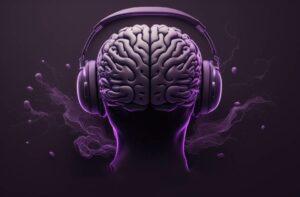The human brain is a complex and remarkable organ that serves as the control center for the nervous system. It is responsible for processing information, controlling bodily functions, and regulating thoughts, emotions, and behavior. The brain is composed of billions of neurons, specialized cells that transmit information through electrical and chemical signals, forming intricate networks that enable various cognitive functions and processes.
Anatomically, the brain is divided into three main regions: the forebrain, midbrain, and hindbrain. The forebrain consists of the cerebrum, which is the largest part of the brain and is responsible for higher cognitive functions such as thinking, learning, memory, and conscious perception. It is further divided into two hemispheres and four lobes: the frontal, parietal, temporal, and occipital lobes, each responsible for specific functions. The forebrain also contains the limbic system, which plays a crucial role in emotional regulation and the formation of memories.
The midbrain and hindbrain are involved in regulating essential functions such as movement, balance, and vital processes like breathing and heart rate. The midbrain contains structures such as the substantia nigra and red nucleus, which contribute to motor control, while the hindbrain includes the cerebellum, pons, and medulla oblongata, which are essential for coordination, sleep regulation, and autonomic functions.
Neuroscientists continue to explore and uncover the mysteries of the human brain, aiming to understand its intricate structure, function, and capacity for change. Advances in brain imaging technology and research have led to a greater understanding of brain plasticity, the ability of the brain to adapt and reorganize itself in response to experiences, learning, and injury.
Brain
The human brain processes information through the communication between neurons, specialized cells that transmit electrical and chemical signals. Neurons receive input from other neurons through structures called dendrites, generate an electrical signal (action potential) if the input is strong enough, and transmit the signal to other neurons via axons. The point of connection between neurons is called a synapse, where chemical messengers called neurotransmitters facilitate the transmission of signals across the synaptic gap.
Brain plasticity, or neuroplasticity, refers to the brain's ability to change and adapt its structure and function in response to experiences, learning, and injury. This can involve the formation of new neural connections, the strengthening or weakening of existing connections, or the reorganization of neural networks. Brain plasticity is essential for learning, memory, and recovery from brain injuries, and it occurs throughout the lifespan, although its capacity tends to decrease with age.
To maintain and improve your brain's health and function, it's essential to engage in activities that promote cognitive stimulation, physical exercise, and a balanced diet. Cognitive stimulation can be achieved through activities such as learning new skills, solving puzzles, or engaging in intellectual pursuits. Physical exercise is crucial for maintaining overall health and has been shown to benefit brain function by increasing blood flow, reducing inflammation, and promoting neurogenesis (the formation of new neurons). Consuming a balanced diet rich in fruits, vegetables, whole grains, lean protein, and healthy fats can provide the necessary nutrients for optimal brain health. Additionally, managing stress, getting enough sleep, and staying socially engaged can further contribute to a healthy brain.
Related Semantic Entities for Brain











